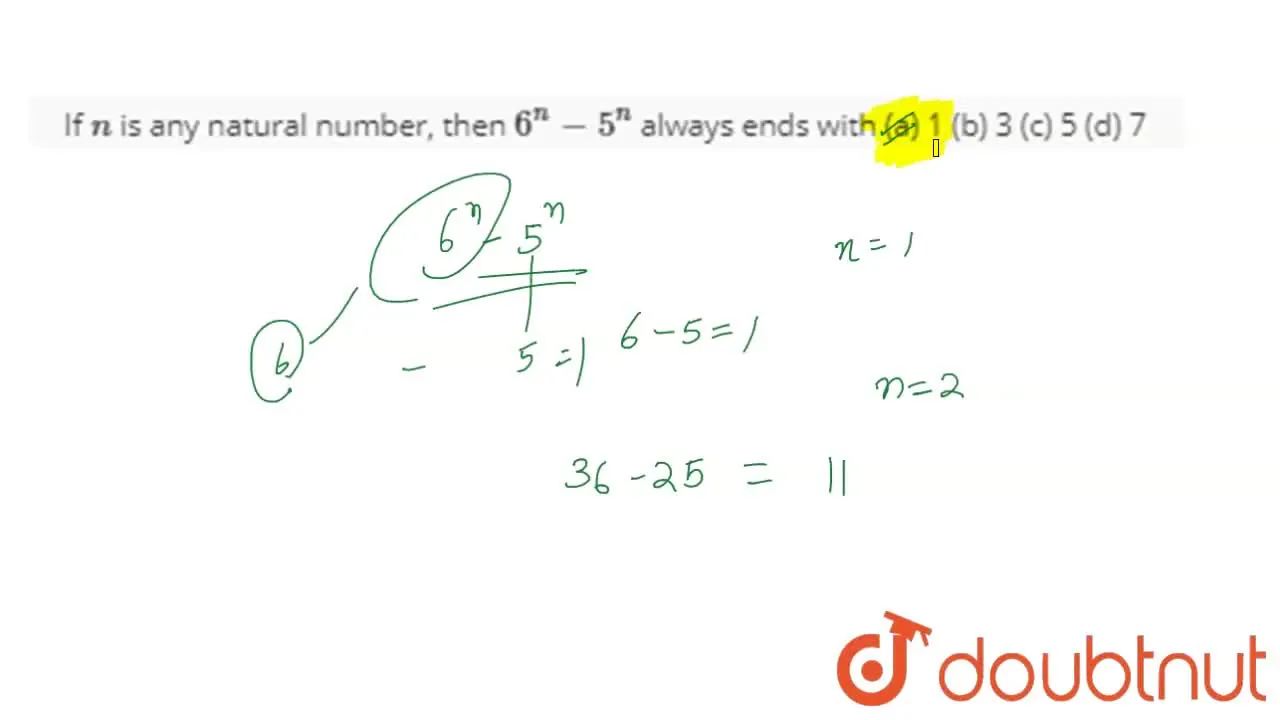If n is any natural number, then 6n−5n always ends with (a) 1 (b) 3 (c) 5 (d) 7 [Hint: For any n∈N, 6n and 5n end with 6 and 5 respectively. Therefore, 6n−5n always ends with 6−5=1.]
Step by step video & image solution for If n is any natural number, then 6^n-5^n always ends with (a) 1 (b) 3 (c) 5 (d) 7 [Hint: For any n in N ,\ 6^n\ and 5^n end with 6 and 5 respectively. Therefore, 6^n-5^n always ends with 6-5=1.] by Maths experts to help you in doubts & scoring excellent marks in Class 10 exams.
Related Playlists
Similar Questions
If n is any natural number, then 9n−5n ends with
View SolutionIf n is a natural number, then 92n−42n is always divisible by 5 (b) 13 (c) both 5 and 13 (d) none of these
View SolutionIf n is any natural number, then 52n−1 is always divisible by how many natural numbers ?
View SolutionIf n be any natural number then by which largest number (n3−n) is always divisible? 3 (b) 6 (c) 12 (d) 18
View SolutionIf n is a natural number then show that 1.3.5.7…..(2n−1)=(2n)!2nn!
View Solution5n−1 is always divisible by (n∈N)
View SolutionIf 6n−5n always end with a digit, where n is any natural number, then the desired digit is
View SolutionIf ^(n+1)C3=2.nC2, then n= (A) 3 (B) 4 (C) 5 (D) 6
View SolutionCan the number 6n,n being a natural number, end with the digit 5? Give reason.
View SolutionCheck whether 6n can end with the digit 0 (zero) for any natural number n .
View Solution


